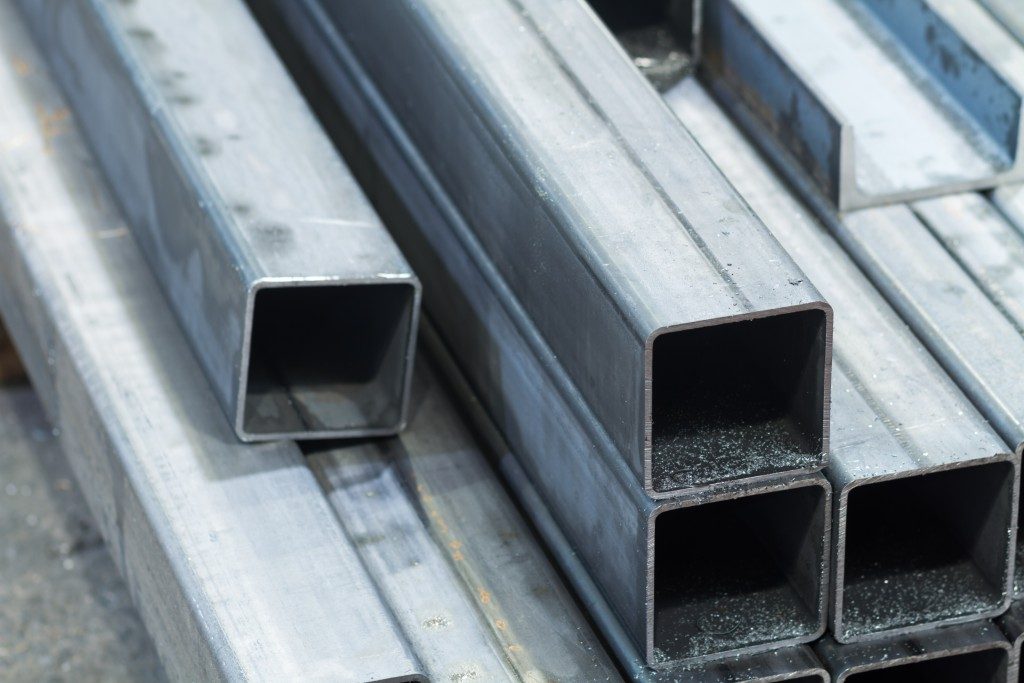Most of the metals with pure kind come from the Earth’s crust. They are ores — solid materials (minerals), which are naturally occurring in rocks. Experts mix metals to produce alloys — an improved version of the metal. If you are planning a construction, you can find a reputable supplier of metal products or materials in Utah and other states. This guide will talk about metals and nonmetals for your awareness. It’s beneficial to distinguish the elements you will use in every construction project to ensure that it stays longer and avoid issues in the long run. 
What are Nonmetals?
A nonmetal is an element or substance that does not exude metallic luster. Nonmetals are weak in conducting heat and electricity. They can be in the form of solid, liquid, or gas. Nonmetal elements include the following:
- Nitrogen
- Carbon
- Helium
- Oxygen
- Sulfur
- Chlorine
What are Metals?
Unlike nonmetallic substances, metals show a shiny metallic gleam. They are ductile, malleable, and best conductors of heat and electricity because of their dense property. They lose electrons to generate positive ions. Some of the pure metals include:<
- Uranium
- Iron
- Sodium
- Aluminum
- Calcium
Mercury is included in the list, but it changes from solid to liquid form due to its weak atomic bonds. It solidifies by cooling it below its melting point. But typically, it stays in liquid form at room temperature, or other environmental factors, like pressure. If you look at the periodic table, nonmetals are situated on the upper right part of the sheet. To the left are metals and alloys.
The Essence of Determining the Difference Between Metals and Nonmetals
It’s important to be aware of the properties of the elements that you’ll use in your construction project. In the market, you can find metalloids or semimetals. They are chemically processed to exhibit the properties of metals and nonmetals. Examples of these substances are boron, silicon, germanium, arsenic, antimony, tellurium, and polonium. Now, you might ask, what’s their worth? In fact, metalloids play a significant role in people’s daily lives.
- They are an essential component of electronic devices, such as semiconductors.
- They are flame retardant in plastics.
- They can be used to bond magnets and other chemical elements
Top Qualities You Should Look for in a Metal Supplier
Having the right supplies is crucial for any business. Here’s what you should expect from a trusted metal supplier:
- Reliability: When you’re rushing to finish a big order, getting consistent delivery times from the supplier is critical. It’s beneficial to your business if you get the tools and materials you need on time.
- ISO Certified: Before making a deal with a supplier, check if they have ISO certification. If they have this, it gives you peace of mind that their business process is consistent and well-documented. There’s a higher chance that the company provides high-quality materials if they are certified and tested.
- Low Rejection Rates: Check the history of the supplier. One of the ways you can do this is to read product reviews online. Through this, you can make a well-informed decision in buying materials for your projects.
- Processing Equipment: Find the supplier that uses the right tools and equipment to meet their production demands. You should think twice to deal with the company if they still do shaping metals manually, as the consistency of the end product cannot be guaranteed compared to using manufacturing robots or advanced tools and equipment.
When looking for the right materials for your construction project, choose the company that has a motivated team of professionals. It’s a cost-saving solution to obtain materials with the lowest price, but never forget to consider the quality, especially if you’re investing for long-term goals. The provider of construction materials must be honest with you, so you can avoid inconvenience in the future.

